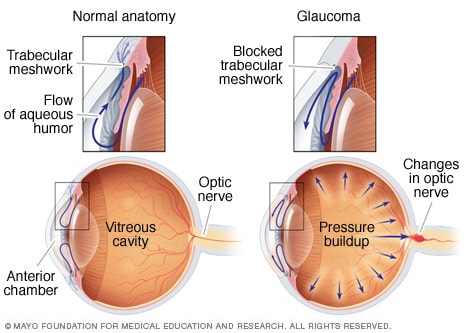Though many of us wear glasses, very few of us realize the maintenance they actually need to keep our vision clear. Maintaining your eyewear isn’t difficult, but it does require special care. Read some of our tips for taking care of your eyeglasses
Tips for Maintaining Your Glasses
Avoid Chemical Contact
Your glasses can be very fragile depending on how they were made. Some lenses have films on them to provide UV protection, scratch or shatter resistance, or even to enhance your prescription. These films are the most fragile part of your glasses, and they can easily be destroyed by contact with certain abrasive chemicals.
While it’s obvious that you shouldn’t scrub your glasses with, say, bathroom cleaner, it’s much less obvious that everyday things we put on our skin, like lotions and sunscreen, can be nearly as bad for our sensitive glasses as the bathroom cleaner we all know we should never use.
These products can contain mild abrasives that do not harm (and sometimes can even help!) our skin but may harm the film on our glasses, especially with exposure over time.
Wash Your Hands
The only way to be certain that you are avoiding any chemical contact with your glasses is to wash your hands before handling them. Lotions and sunscreens are just two of the many things we can have on our hands; often our hands have all sorts of random things on them that we don’t notice or can’t see.
A simple hand washing before you handle your glasses can help to keep the abrasives from getting onto your lenses and can help keep everything clean.
Rinse Your Lenses
While you’re at the sink, run your glasses under a gentle stream of warm water. This will help to carefully remove any loose dirt or other debris that could scratch the lenses when you wipe your lenses.
If you were to omit this step, you might end up scratching your lenses with invisible debris. While the damage might not be visible immediately, it will degrade your lenses more quickly.
Use a Lens Cloth
Once your hands are clean and you’ve run your glasses under warm water, you can wipe the lenses off to remove any leftover oils and grime. Back away from that T-shirt and put down the paper towels! You should only use a cloth specially designed for lenses. Your local Eyeglass World will sell these as either lens cloths or microfiber cloths. Using a material that was not intended to clean glasses can and will do more damage than the little bits of dirt you’re trying to remove.
Use a Cleaning Solution
Usually, a simple rinse and wipe is enough to get your frames back to top condition. However, there are always cases where we end up with grime that just won’t come off easily.
In these cases, you should only use a cleaning solution that you get from your optometrist. These cleaners are specially formulated to be very gentle on your glasses, whereas cleaners that might work on other forms of glass could be harsh and cause damage.
Store Them Correctly
Remember, when you’ve cleaned your eyeglasses, you need to be sure to store them properly to avoid having them collect more dirt, causing you to have to repeat the process more often than necessary.
Use the case your eyewear came in to store them. Hard cases generally provide more protection than soft cases. Even though they tend to be bulkier – they’re the safer choice.
If you have any questions, stop by any of our branches

 Open-angle glaucomaOpen pop-up dialog box
Open-angle glaucomaOpen pop-up dialog box